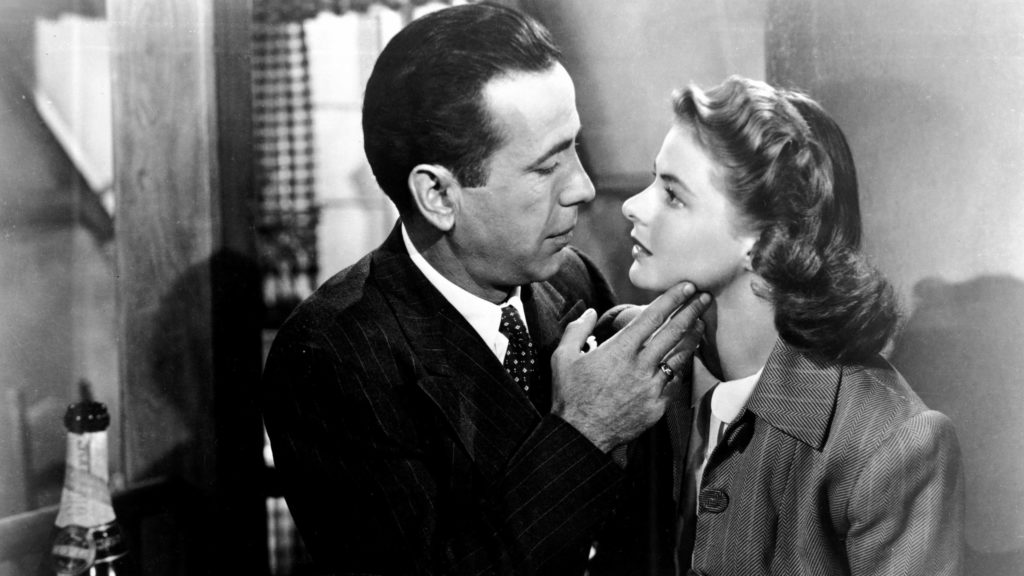There’s an Oscars happening this weekend, and since I’ve been sort of grumpy about them all season, I thought it would be fair to try to do something nice and pro-Oscarey, and make a list of ten times that I thought the Academy got it dead right: the times that the best film of the year got the top prize at the Academy Awards.
But I couldn’t come up with ten (so much for being pro-Oscars), and my back-up – the times when my favorite of the nominees got the award – produced too many possibilities (though still less than a quarter of the total number of winners). So I finally had to make do with-
The Ten Times That the Oscars Gave Best Picture to the Actual Best Picture of the Year (or Rather, the Best English-Language Film Produced by an American Studio), If You Sort of Fudge It in Those Early Years When the Eligibility Period Was Divided Between Two Calendar Years And Also I Only Came Up with Nine So I Made Something Up to Round It Off
1929-30: All Quiet on the Western Front (Lewis Milestone, Universal)
This was the one I fudged: I think Rouben Mamoulian’s Applause (premiered October, 1929) is better than AQotWF (premiered April, 1930), so I’m squinting a bit and calling it the award for 1930, and praising Milestone’s tremendously inventive early sound film, still one of the most effectively hellish war movies ever made and a one-stop argument against the twits who think that old movies are cheesy and boring.
1934: It Happened One Night (Frank Capra, Columbia)
Given a little bit too much popular credit for “inventing” screwball comedy, but that doesn’t keep it from being one of the smartest and funniest movies of the 1930s, arguably the smartest and funniest decade in cinema history. Hovering on the transition from Pre-Code to Code Era filmmaking, it has a subtle naughtiness that gives it a modernist bite; and neither Claudette Colbert nor Clark Gable was ever better
1943: Casablanca (Michael Curtiz, Warner Bros.)
This is my desert island movie: the perfect example of the Hollywood machine working at its very best. Either you’ve seen it and you don’t need an explanation, or you haven’t seen it and Jesus Christ, what is wrong with you?
1957: The Bridge on the River Kwai (David Lean, Horizon/Columbia
A staggering indictment of wartime masculinity, centered on Alec Guinness’s brilliant performance (one of the best ever captured on film) as a stiff British officer who won’t let a little thing like sanity stand between him and his beloved honor. There’s plenty more to chew on, like William Holden’s snotty American Cassandra and some glorious epic photography, and for a film that so profoundly explores the nightmares of war, it’s a damn fine entertainment.
1962: Lawrence of Arabia (David Lean, Horizon/Columbia)
I like David Lean, all right? The best landscape cinematography ever (if you haven’t seen it on 70mm, you haven’t really seen it) gives a frame and context for the best debut performance ever (Peter O’Toole’s haunted, hollow T.E. Lawrence, a man without a self trying to find it in the desert) and a story that makes outstanding use of the great tableaux provided by the vogue for epics in the ’50s and ’60s: the scale of the movie makes for an ironic counterpoint to the psychological probing.
1968: Week End (Jean-Luc Godard, Athos Films)
Do you remember how awesome it was that one time, when a surprise write-in campaign drove the aggressively pop-Marxist French film to take the top award over the expected winner, the listless musical Oliver!? And everybody agreed it was a triumph of Hollywood’s commitment to artistry over bland, audience-friendly mediocrity, which then they proved with an amazing chain of follow-up winners: Z, My Night at Maud’s, Death in Venice. What a great time to be an Oscar-watcher, in my imagination!
1972: The Godfather (Francis Ford Coppola, Paramount)
I’m on record as preferring the sequel, but the original is still one of the great stories of American ambition and greed put to film, a virtually Shakespearean tragedy. Again, I don’t think you need me to explain why it’s great film, right? …please?
1977: Annie Hall (Woody Allen, United Artists)
The most intelligent comedy ever made about relationships: from the dialogue to the occasional well-played gimmick to the very structure of the film, rendering its story as the fragmentary, discontinuous memory of a lapsed romantic licking his wounds. As hilarious as it is painful as it is honest.
1984: Amadeus (Milos Forman, Saul Zaentz/Orion)
You know what’s completely awesome? Though it was filmed in America with a script written by an American, with a cast made up almost exclusively of Americans, Paris, Texas doesn’t have a drop of American money in it. Which freed me up to give a slot on this list to Forman’s film of Peter Shaffer’s play, a melodramatic and grossly ahistorical study of the trumped-up rivalry between Mozart and Salieri that reigns as American cinema’s finest tribute to classical music, genius, and envy.
1992: Unforgiven (Clint Eastwood, Warner Bros.)
Sometimes I drift over to thinking I might call one of Eastwood’s other movies his best as a director, but I keep coming back to the potency of his bloody-minded nihilistic fable, an indictment of violence and his own legacy as a screen presence. It’s so obvious that it’s almost comical, if not for Eastwood’s harsh performance, probably the best of his career, keeping everything in check. The rare blend of film noir and Western at its stormiest.
